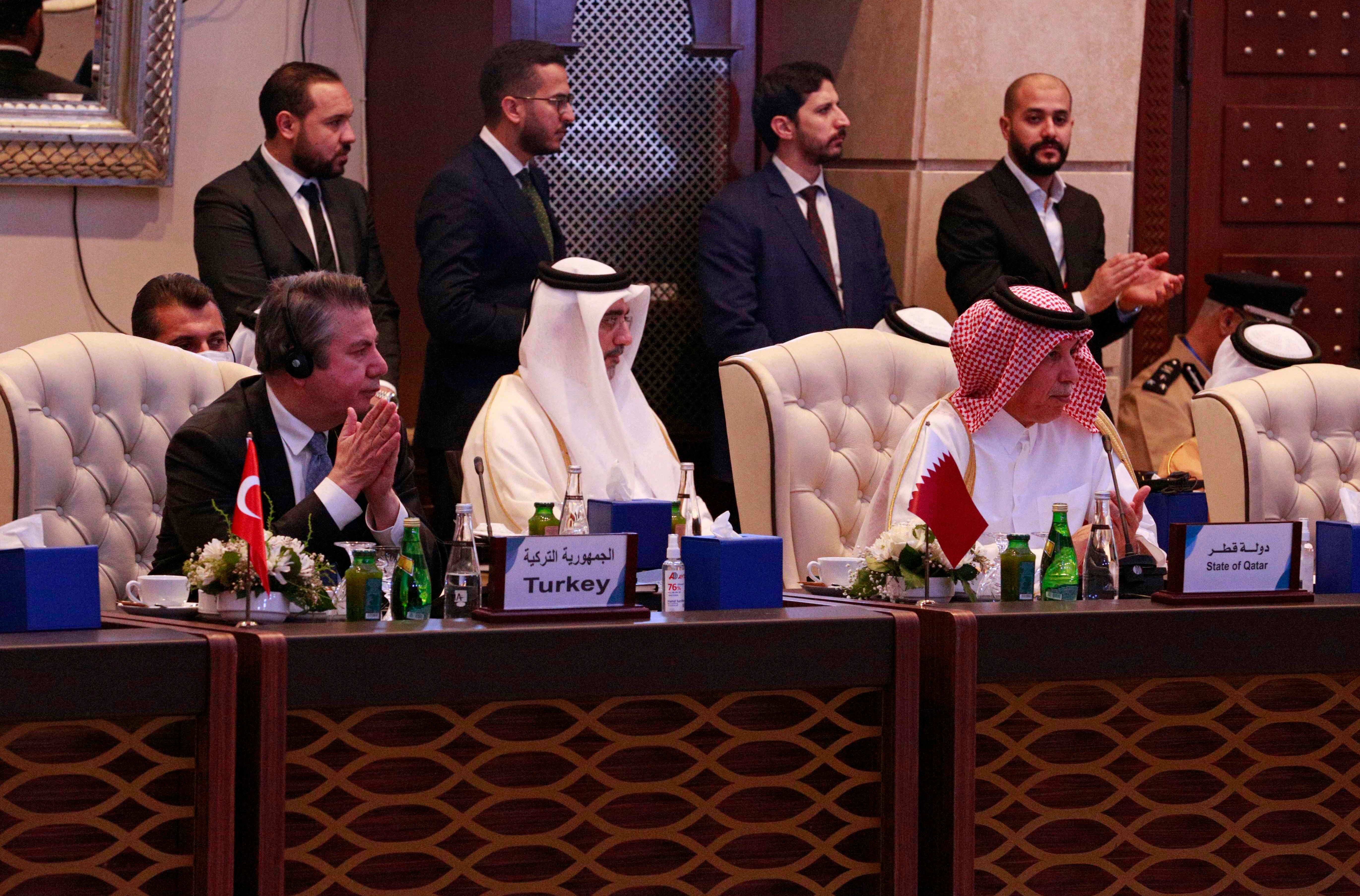Libya conference aims to salvage planned December elections
Libya is hosting an international conference aimed at resolving the country’s thorniest issues ahead of general elections in December

Your support helps us to tell the story
From reproductive rights to climate change to Big Tech, The Independent is on the ground when the story is developing. Whether it's investigating the financials of Elon Musk's pro-Trump PAC or producing our latest documentary, 'The A Word', which shines a light on the American women fighting for reproductive rights, we know how important it is to parse out the facts from the messaging.
At such a critical moment in US history, we need reporters on the ground. Your donation allows us to keep sending journalists to speak to both sides of the story.
The Independent is trusted by Americans across the entire political spectrum. And unlike many other quality news outlets, we choose not to lock Americans out of our reporting and analysis with paywalls. We believe quality journalism should be available to everyone, paid for by those who can afford it.
Your support makes all the difference.Libya is hosting an international conference aimed at resolving the country's thorniest issues ahead of general elections planned for December. Western, regional and United Nations representatives are meeting Thursday in the capital, Tripoli
According to documents obtained by The Associated Press, several contentious issues are on the table, including maintaining the country's ceasefire, uniting the country's many armed groups under a single security body, and the withdrawal of foreign fighters.
Libya has been engulfed in chaos since a NATO-backed uprising toppled longtime dictator Moammar Gadhafi in 2011. He was captured and killed by an armed group two months later. The oil-rich country was for years split between rival governments, one based in the capital, Tripoli, and the other in the eastern part of the country. Each side is backed by different foreign powers and militias.
After months of U.N.-backed negotiations, an interim government was elected in February to lead the country to presidential and parliamentary elections on Dec. 24. As the countdown to the poll begins, differences are re-emerging between Libyan rivals - putting the entire reconciliation process at risk.
“Libyans choose peace & stability today,” tweeted Libyan Prime Minister Abdul Hamid Dbeibah ahead of the conference, a day after the 10-year anniversary of Gadhafi's death. "Tripoli has healed and regained its symbol as a unified capital. The stability of Libya is the only way to complete building our civilian, security, and military institutions. We are going to elections on time."
Foreign ministers of Egypt, Tunisia, Algeria and Kuwait have arrived in Tripoli to participate in the talks. French Foreign Minister Jean-Yves Le Drian and U.S. Acting Assistant Secretary for Near Eastern Affairs Yael Lempert are also attending, as is Niels Annen of Germany's Foreign Office.
The attendees will discuss an initiative launched by the Libyan interim government entitled “Libya Stabilization.” A document detailing the initiative, obtained by The Associated Press, suggests the creation of an international group that will assist Libya's transitional government in resolving key issues.
Regional and international help is needed to consolidate a U.N.-backed ceasefire, ensure withdrawal of mercenaries and foreign figures and unify Libya's many armed groups under a single command, according to the document.
The conference aims to forge an agreement with all parties on “some permanent mechanism to coordinate efforts in order to solve pending issues," said Dbeibah in his opening remarks.
Rosemary A. DiCarlo, the U.N.'s under-secretary-general for political affairs, also addressed the attendees reiterating her organization's call for the withdrawal of foreign fighters from Libya.
The dispute over mercenaries and foreign fighters has long been an obstacle, particularly ahead of Libya’s landmark general elections. Earlier this month, the U.N. mission in Libya mediating between the rivals said a 10-member joint military commission, with five representatives from each side, had agreed to start a “gradual and balanced” withdrawal of foreign fighters.
Libya’s civil war escalated in 2019, when self-styled military commander Khalifa Hifter, allied with the eastern-based administration, launched an offensive to take Tripoli from armed militias loosely allied with the U.N.-supported but weak government in the country’s capital.
Hifter was backed by Egypt, the United Arab Emirates, Russia and France. However, his 14-month campaign and march on Tripoli ultimately failed in June 2020, after Turkey sent troops to help the U.N.-supported administration.
After the fighting largely stalemated, subsequent U.N.-sponsored peace talks brought about a cease-fire last October and installed an interim government that is expected to lead the country into the December elections. The ceasefire deal also included the departure of foreign forces and mercenaries within three months — something that was never implemented.
The U.N. has estimated that there have been at least 20,000 foreign fighters and mercenaries in Libya over the past few years, including Russians, Syrians, Sudanese, and Chadians.